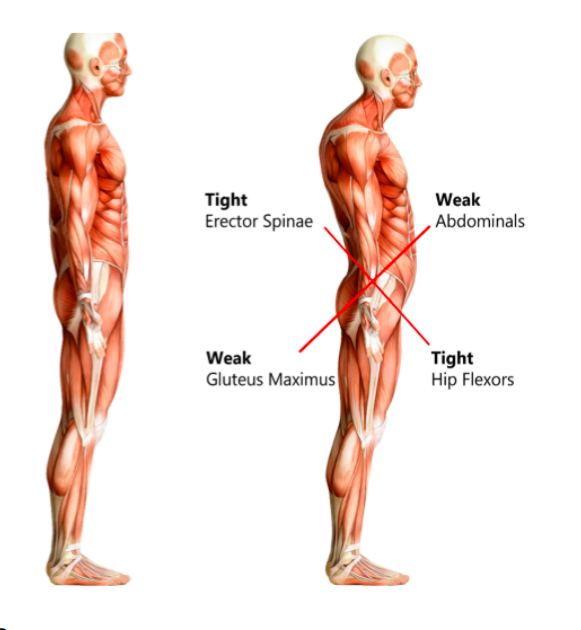Physiotherapy and More: Ways to Improve Chronic Pain Management

Chronic pain can be debilitating. If you experience a pain lasting for more than 3 to 6 months, you are suffering from chronic pain.
There are several types of chronic pain, including some that can last a lifetime. But with help, there are ways to manage your pain. In this article we discuss how physiotherapy affects chronic pain and our recommended strategy on how to deal with chronic pain.
How physiotherapy helps with chronic pain
A safe alternative to opiods for pain, physiotherapy helps your pain management process through:
Exercise – Physiotherapists can prescribe and guide you through exercises specific to your goals and needs. A study found that those who exercised on a regular basis, experienced less pain. And among those who exercised more than 3X per week, chronic widespread pain was 28% less common1.
Manual Therapy
Research supports a hands-on approach to treating pain. Physiotherapists can effectively reduce your pain and improve your movement through the use of different manual techniques which may include manipulation, joint mobilization, and soft tissue release techniques such as active release, passive stretching and cupping or trigger point release.
Modalities
Physiotherapists also have training in the use of a variety of devices that also aid in the reduction of pain and help reduce muscle tension and restore movement. Some modalities are devices like, medical laser, ultrasound, IFC, and electrical vibrators. Some physiotherapist also get specialized training in Acupuncture, dry needling, as well as shockwave therapy in order to provide you with the most effective treatments for your specific needs.
Education
Research on pain management consistently demonstrates that those who receive educational sessions with regards to their signs and symptoms of pain were more likely receive physiotherapy treatment than those who didn’t receive education about pain. Patients without proper education on one’s specific problems and why they have pain, usually give up because of past failed attempts with different prescribed medicines. Physiotherapists have the education and training to discuss with you your injury history, the types of pain you have, the duration of your current signs and symptoms and help set realistic goals, how to safely proceed with your rehabilitation and give you realistic goals and expectations about your treatment and recovery.
Teamwork
Recent studies have shown that a positive and active relationship between you and your physiotherapist can impact your success1.

A chronic pain management strategy
Physiotherapy is an important first step in managing your chronic pain condition and the therapist will educate you how to incorporate physio into your treatment and management of your pain. Below are some strategies utilized by physiotherapists in order to help you with your current conditions and return you back to a better quality of life.
- Know your body
Every individual’s body is unique; however, the basic workings of the body is universal. The first rule to managing your chronic pain is to understand how your body works. You do not need to earn a MD, you just need some basic knowledge about the body, and how and why we experience pain. This way, you can learn how to avoid aggravating factors and be more cautious with your body to better manage your current condition and not produce more pain. - Move your body
When one is in pain, the last thing you want to think about is exercise, but living a sedentary lifestyle can actually make your chronic pain worse. Your body is approximately 60% water and in order for it to maintain homeostasis it needs to move. If you think of a pond without any movement, you can see the pond become stagnant, life within the pond slowly dies and a sludge grows over it. Now take that same pond where there is a fresh stream of water moving through it. The pond springs to life, flowers and vegetation grow, fish and other wildlife continue to flourish and balance is achieved. So, your body is like the pond and the only way to keep it healthy is to keep it moving. Getting some exercise every day, even if it’s just starting to walk 15 minutes a couple times a day, it’s movement that your body needs. - Get professional assistance
If you are experiencing any kind of pain, soreness, or an injury, it is important to consult a
physiotherapist. Have a professional correctly diagnose your pain, help you with tips to better manage your pain, better understand why you have the pain and help you on your way to recovery. The earlier you consult a physiotherapist, and receive the assistance you need, the better chances you’ll have at overcoming your problem. - Trust your body
Even with all the advances of technology, medical imaging such as x-rays, ultrasound or MRIs doctors still can’t always pinpoint exactly where your pain is coming from and why. These diagnostic machines are just tools in seeing deeper into the body’s tissue to hopefully better understand why you have the pain you do . And if you feel that something isn’t right but your tests are all clear, don’t discount your pain. Seek out a physiotherapist and get a proper mechanical evaluation, where they can better evaluate your pain because they have the objective measures to be able to test your body in its natural environment. - Don’t ignore your mental health
Your mental health plays a large role in your physical health too. It is important that you address any mental health issues that you might be facing with a professional. Caring for your mental health can change your perspective and your pain. If you are experiencing symptoms of anxiety and depression, you are at a higher risk of experiencing chronic pains. Often, people avoid addressing mental health issues due to stigmas, but it is important to take care of both body and mind, as they are interrelated.
Nutrition
Your nutrition is also a very important variable which can either help with the reduction of pain or in some cases even increase you current pain levels. Certain foods are like toxins to some people’s digestive systems and the old saying “you are what you eat” can’t be truer. As society has become better educated on what foods are either good for you are harmful, we need to now put better nutrition into practice.
What we can do for you
Elite Physio has the staff with the education, background, and passion to help each and every patient that we treat. We have a team that includes Physiotherapists, Chiropractors, a Nutritionist and Psychologist. So, no matter the type of pain and how long it has been bothering you, we can help!
IMPORTANT
After reading this article, please don’t self-diagnose yourself on the internet! All bodies are different and you should get an accurate assessment in order to properly address your chronic pain. Always consult your physician to be sure you’re getting the correct diagnosis and treatment. If you both decide you require the services of a physiotherapist, we can help.
1 Fact Sheet: How Physiotherapists manage pain, Canadian Physiotherapy Association.




